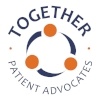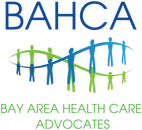COVID-19 is an elusive, yet persistent part of our lives. We want to understand the virus as much as possible in order to avoid becoming one of its statistics. Daily updates are readily found online, on television and in print. Discoveries, theories, statistics, and predictions abound. Yet how do you know which sources to trust?
Sources we once thought were naturals for credibility now leave us less certain. The Centers for Disease Control (CDC), previously known for their world-class leadership in infectious diseases, stumbled badly last February by not tracking and tracing potential carriers returning to the US from China, followed by contaminated test kits, and most recently, statistics that erroneously increased the number of current cases by combining the number of people with the virus and those who previously had it.
Earlier this week, the World Health Organization (WHO) had to walk back a scientist’s comment that it is “very rare” for people who never develop COVID-19 symptoms to spread the virus. She later had to clarify that the likelihood of transmission from those who are asymptomatic – infected but have no symptoms -- is actually still unknown because the test results she referred to were from small studies, and therefore, could not be used to draw broad conclusions. Furthermore, those who are asymptomatic and later develop symptoms are indeed most contagious in the immediate days before symptoms occur.
So where do you turn for reliable facts? First, check multiple sources to determine if they are all reaching the same or similar conclusions. Look for further research or analysis that either supports, disputes, or questions the new information. Listed below are some websites and podcasts to consider.
Websites
- State Libraries – Just because you may not be able to go inside a library doesn’t mean you have no access to their online up-to-date COVID-19 information. The American Library Association has a directory of state libraries for all 50 states. Search your state’s library for COVID-19, and you will see the free online resources available to you. For example, the California State Library offers online information and links to other applicable sites, such as the California Department of Public Health and the state’s main COVID-19 website.
- National Library of Medicine - The library provides not only news updates, but links to PubMed for journal articles and Medline Plus for health information, as well as many other resources.
- Food and Drug Administration (FDA) - Within the website’s COVID-19 section is a sub-section for educational resources with links to videos, consumer articles and information pages for things like virus testing and how to shop safely.
- Kaiser Family Foundation (no connection to Kaiser Permanente) -- This non-profit organization considers itself an independent information organization with a focus on how policies affect people. You will find a national perspective on COVID-19 through statistics and policies, as well as the virus's economic and social implications."
- Los Angeles Times – Committed to “providing vital information on the pandemic,” the LA Times is offering free online access to their COVID-19 coverage. The newspaper provides a wide array of articles from basic information to science coverage written in a way that non-scientists can easily understand.
Podcasts
If you prefer listening to updates and also want a global perspective, try:
- BBC Coronavirus Global Update - These podcasts include medical information and the impact of the virus on health, business and travel. COVID-19 information is also available on the BBC Health Check podcast.
- New Scientist - For a deeper dive into science, check out this London-based podcast launched in January by New Science magazine (founded in 1956). Hosted by a PhD in evolutionary biology and a Doctor of Philosophy in developmental genetics, it covers a wide range of topics, including COVID-19. It’s not just for scientists!
However you choose to get your updates, stay informed with credible sources. Your health may depend on it.




.gif?width=200&name=NAHAC-Member-Badge200x112+(1).gif)


